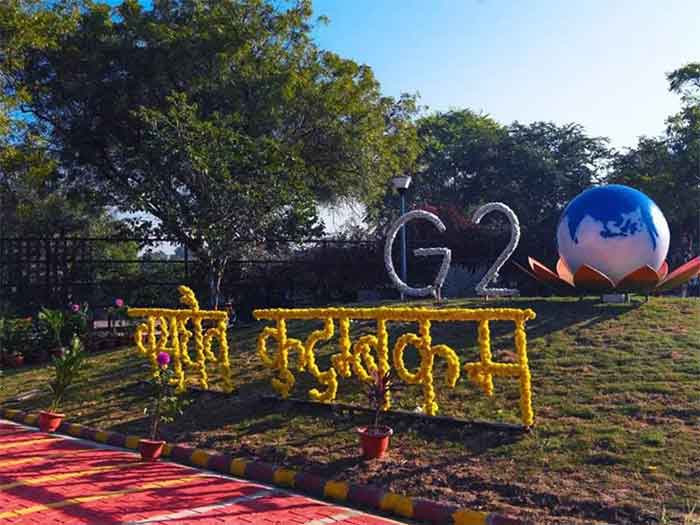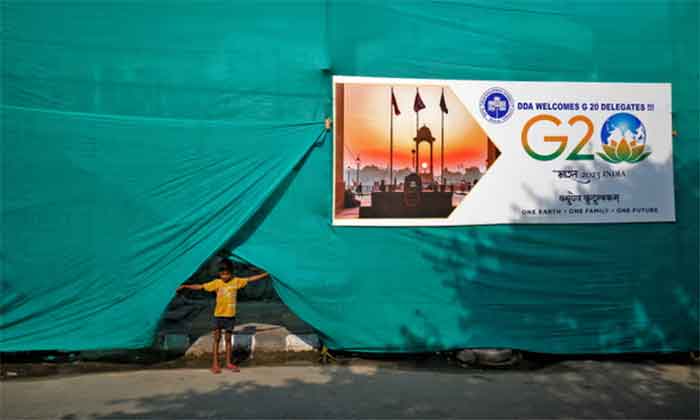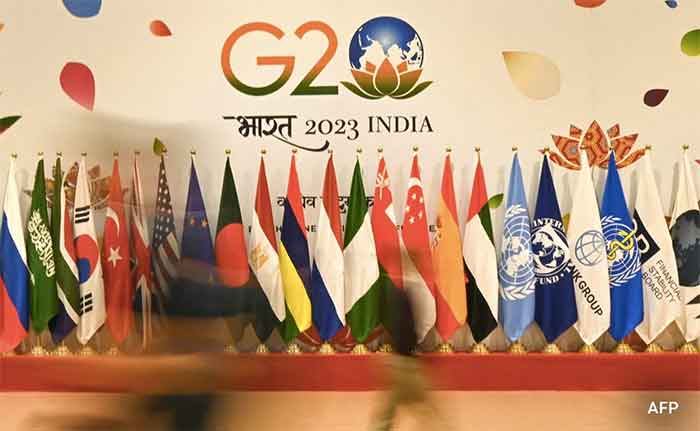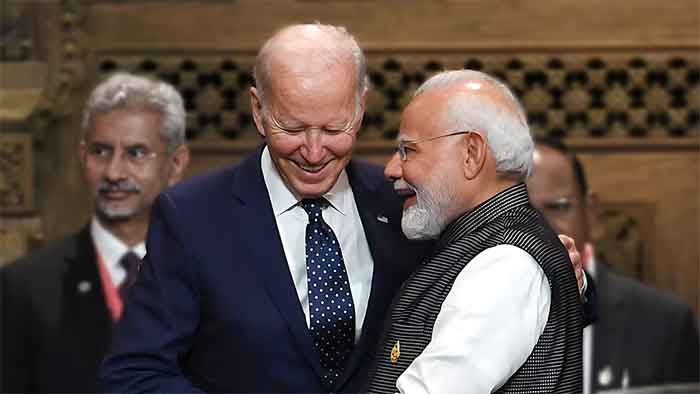
New Delhi today sits at the centre of the global summit called G-20 – hosting VIPs from different parts of the world in the midst of pompous demonstrations of Prime Minister Modi’s suzerainty over India, and outreach beyond its borders. Coming down to brass tacks, G-20 is an exclusive club of elite capitalist states which promote neo-liberal economic policies at the expense of their common citizens. Since Modi is following the same model, the G-20 club has condescended to pat Modi on his back to preside over its next summit meeting in Delhi.
The brouhaha over the G-20 meet in September carries echoes of another summit which was planned in the same Delhi and spread out to its neighbourhood , about a hundred and fifty years ago. In 1877, an Imperial `Durbar’ was inaugurated there by the then British viceroy of India, Lord Lytton to mark the 1876 proclamation of Queen Victoria as the `Kaiser-i-Hind’ (Ruler of India). Lytton arrived in Delhi on Decmber 23, 1876 from Calcutta by a special train. At about the same time, some 400 Indian rulers of princely states and their retinues assembled in Delhi. On New Year’s day in 1877 Lord Lytton and his family arrived at the `Durbar’, seated on elephants, recalling the pomp and splendor of the Mughal era.
A parallel summit in Calcutta in 1877 and a poem recited there
Soon after the `Durbar’ in Delhi, a group of Bengali intellectuals and social activists met at a summit in Calcutta. They had earlier formed themselves into an organization called `Hindu Mela’ from the early 1870s, asserting nationalist aspirations through public meetings, journals, and more importantly by organizing exhibitions of Indian traditional handicrafts and artistic products.
They assembled at the eleventh annual conference of `Hindu Mela’ in Calcutta in March, 1877. Here a sixteen-year old boy recited a Bengali poem composed by him, lampooning the Delhi ‘Durbar’. Entitled `Dillir Durbar,’ the verses were interwoven with feelings of lamentation, barbs of satire, outbursts against the British rulers, and call for raising voices of nationalist protest against colonialism.
It may be worthwhile to re-examine the poem – not only to re-discover an important episode in the history our anti-colonial movement, but also to find a message for us today. The public scenario described in that poem composed some hundred and fifty years ago, finds a replica in the current pageantry of the Delhi Durbar of G-20. We witness similar scenes – business magnates and media honchos groveling before today’s `Kaiser-e-Hind,’ as their predecessors, the rulers of the princely states, did in the past – in the midst of growing unemployment and impoverishment.
The young poet begins his poem by hitting out at the servile demonstration of the Indian rulers of the princely states who congregated at the Durbar. “They have broken out into a frenzy to compete for golden shackles to adorn their necks ,” he writes. He then adds:
“All these (Indian) kings are running
a race to sing in praise of the British,
to bow their heads at the British feet,
offering their crowns and jewels.
Here comes the king of Jaipur ,
Followed by the king of Jodhpur..”
The young poet then addresses the Himalaya in a tone of lament:
“Are you listening, Oh Himalaya, to the paean
sung by India in praise of British victory ?
With sad eyes you are witnessing how people
from an empty desert of a foreign land have
come to occupy India’s throne and are ruling us.
Let me ask you, Oh Himalaya,
Is this the happiest day for India ?”
The poet ends his poem with the following words:
“Those who want to celebrate the victory
of the British, let them sing in their praise.
But we’ll never sing to such a tune.
Let us, all those who are here today,
gather together to sing another melody.”
The composer of these verses was a sixteen-year old lad called Rabindranath Tagore. Some years later, he was to compose the `another melody’ that he talked about – which has become our national anthem.
[Source: `Hindu Melar Itibritto’ (A History of `Hindu Mela’) – a collection of contemporary reports and essays published by Jogesh Chandra Bagal and Shubhendu Shekhar Mukhopadhyay in 1968, and reprinted by `Talpata,’ Calcutta in 2009.]
Sumanta Banerjee is a political commentator and writer, is the author of In The Wake of Naxalbari’ (1980 and 2008); The Parlour and the Streets: Elite and Popular Culture in Nineteenth Century Calcutta (1989) and ‘Memoirs of Roads: Calcutta from Colonial Urbanization to Global Modernization.’ (2016).















































